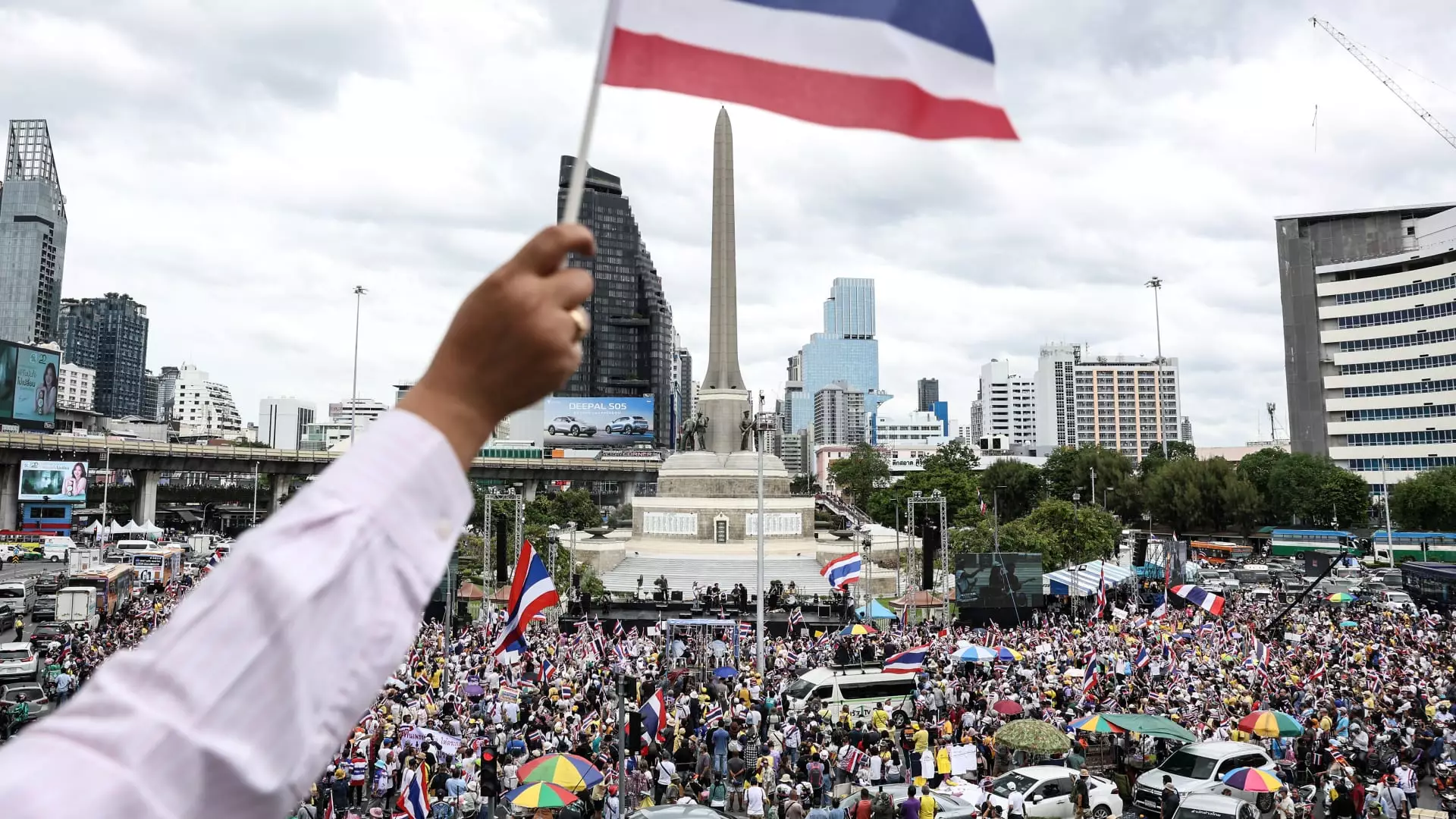The recent wave of protests in Bangkok underscores a deeper, more ominous crisis plaguing Thailand’s political landscape. The demand for Prime Minister Paetongtarn Shinawatra’s resignation is not simply about one border dispute with Cambodia; it’s a manifestation of persistent nationalist fervor and fragile political coalitions that repeatedly imperil Thai democracy. While the demonstration at Victory Monument, the largest against the Pheu Thai-led government since 2023, was orchestrated by nationalist groups, it reflects longstanding resentments and power struggles that have periodically destabilized the country. These protests, although peaceful for now, reignite memories of upheavals that paved the way for judicial interventions and military coups in the past. This pattern shows how political unrest in Thailand is less about popular representation and more about underlying institutional fragilities and entrenched power interests.
The Weight of History on Paetongtarn’s Shoulders
Paetongtarn’s leadership is complicated by the legacy of her family name as well as a political environment that demands near-impossible balancing acts. At 38, she faces a multi-layered challenge: reviving a weakening economy, appeasing nationalist critics, and maintaining a coalition government weakened by the recent exit of the Bhumjaithai Party. The party’s withdrawal—citing fears over national sovereignty following a leaked phone call with Cambodia’s ex-premier Hun Sen—exposes the precarious tightrope Paetongtarn must walk. The phone call leak was not merely a diplomatic blunder; it unveiled Thailand’s vulnerability to external and internal pressures, while Parliament’s looming no-confidence vote threatens to dismantle what little political stability the government commands.
Nationalism’s Toxic Grip on Thai Politics
The protest movement’s embrace of nationalism is both predictable and dangerous. Nationalist activism in Thailand has a long history of catalyzing political crises rather than fostering constructive dialogue or reform. The anti-Shinawatra sentiment fueled by these groups tends not to engage with policy but rather with emotionally charged appeals to sovereignty and military prestige—two pillars deeply embedded in Thailand’s political psyche. The military, despite official civilian governments, remains a powerful actor whose honor and influence cannot be publicly questioned without inviting destabilizing consequences. Paetongtarn’s criticism of a military commander, even if inadvertent or diplomatic in nature, was treated as a political sacrilege, illuminating the ongoing tension between elected officials and entrenched power structures. This reflects a structural weakness in Thailand’s democracy, where nationalist rhetoric can be weaponized to undermine civilian governance and encourage authoritarian interventions.
External Pressures and Regional Dynamics
The public denunciation by Hun Sen of Thailand’s government adds a rare and unsettling external dimension to the crisis. Formerly an ally to the Shinawatra family, Hun Sen’s aggressive televised condemnation breaks diplomatic norms and exacerbates nationalist anxieties within Thailand. This episode exposes the vulnerability of smaller regional players to both domestic political turbulence and external manipulation. It also reveals how personal and political rivalries within Southeast Asia can amplify internal conflicts and dangerously escalate border disputes into full-blown crises. Thailand’s preference for diplomatic resolution—as reiterated by its foreign ministry—may be the only viable path forward, but it is increasingly challenged by nationalist demands that prize confrontation over calm statecraft.
A Fragile State at a Crossroads
Thailand today finds itself balancing on a knife’s edge, where nationalist posturing threatens to drown out the pragmatic governance needed to confront economic woes and social challenges. Paetongtarn Shinawatra is caught in a cycle where any misstep—perceived or real—risks triggering political collapse, judicial action, or military interference. The resilience of Thai democracy depends less on the charisma or competence of any individual leader and more on the ability of the country’s institutions to mature beyond the paralysis of nationalism and power struggles. Unfortunately, the recent protests and government woes indicate that Thailand’s democratic experiment remains perilously vulnerable to regressive forces that prioritize identity and authority over progress and unity.


Leave a Reply